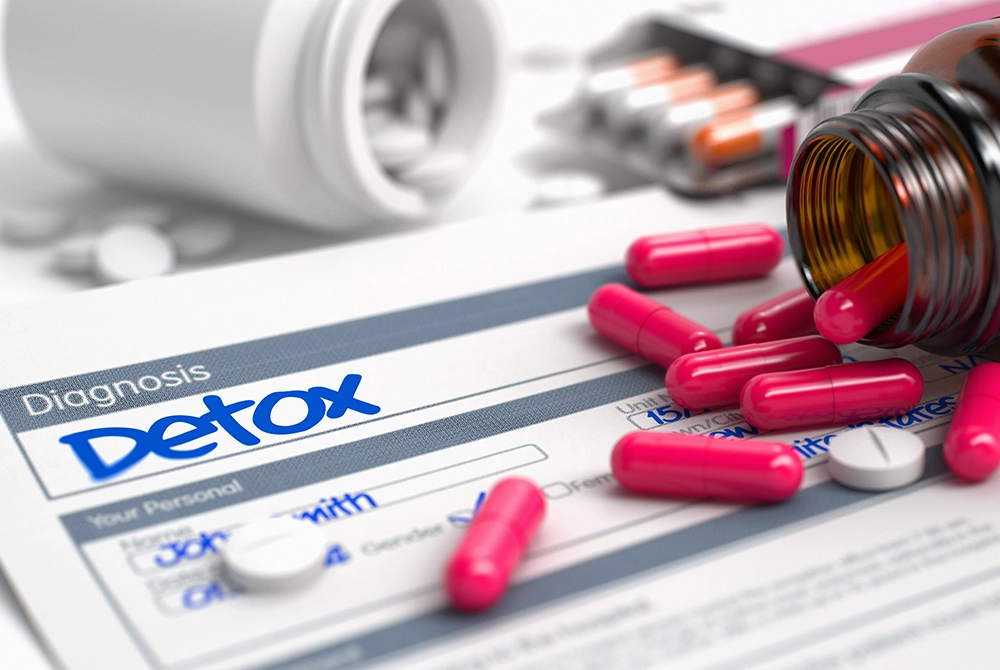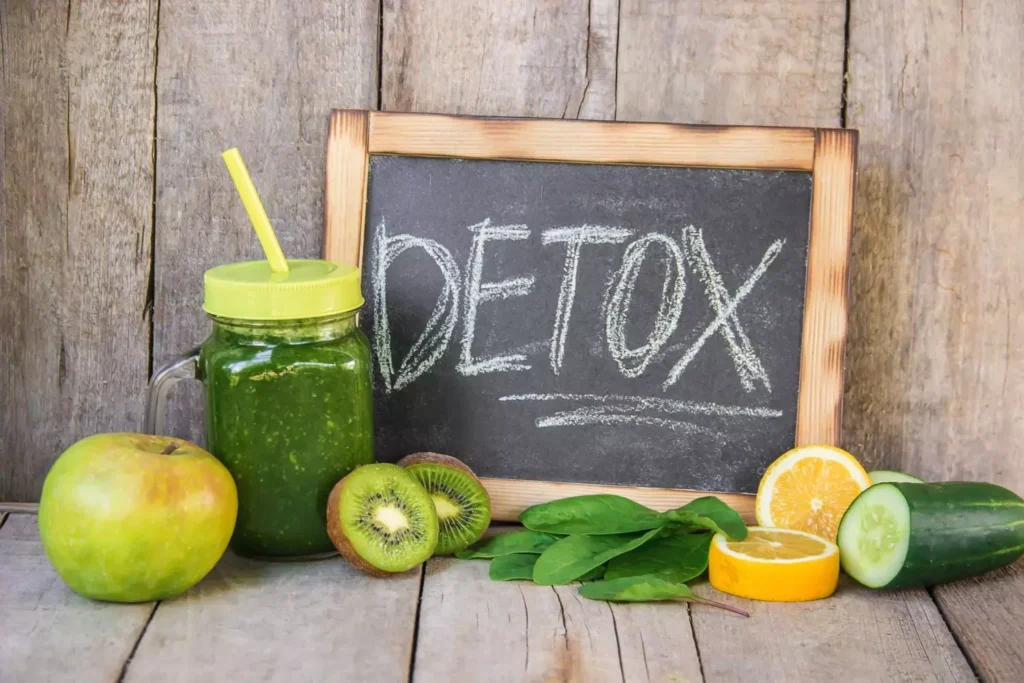Detoxification for Substance Abuse: How to Safely Begin Recovery

Substance abuse is a serious issue that affects individuals physically, mentally, and emotionally. The first step toward recovery is detoxification for substance abuse, a process that helps eliminate harmful substances from the body. However, detox should be approached with caution and professional support to ensure safety and effectiveness. If you’re looking for the best rehab centre in Dehradun, finding the right detoxification program can significantly impact your recovery journey.
What is Detoxification for Substance Abuse?
Detoxification for substance abuse is the process of removing toxic substances from the body to manage withdrawal symptoms safely. The goal of detox is to help individuals become physically stable before moving on to further treatment, such as therapy and rehabilitation. Detox is not a cure for addiction but an essential first step toward long-term sobriety.
Why is Detox Important for Recovery?
Many individuals struggling with substance abuse experience severe withdrawal symptoms when they stop using drugs or alcohol. Detoxification helps in:
- Managing withdrawal symptoms safely.
- Preventing life-threatening complications.
- Preparing individuals for further addiction treatment.
The process should always be supervised by medical professionals, as withdrawal can sometimes lead to dangerous symptoms such as seizures, extreme anxiety, and dehydration.
Additionally, detox is essential because it allows individuals to break free from physical dependence on substances. Without detox, the body continues to crave drugs or alcohol, making it nearly impossible to focus on recovery. Detox helps individuals regain control over their bodies, allowing them to take the next steps toward healing.

The Detoxification Process for Substance Abuse
1. Assessment and Evaluation
Before starting detox, a comprehensive evaluation is conducted to understand the severity of substance abuse, co-occurring mental health disorders, and any medical conditions. This step helps healthcare providers develop a personalized detox plan.
2. Medical Supervision and Stabilization
Medical supervision ensures that withdrawal symptoms are managed effectively. Depending on the substance abused, medications may be administered to reduce cravings and discomfort. Some common withdrawal symptoms include:
- Nausea and vomiting
- Insomnia
- Anxiety and depression
- Sweating and chills
- Seizures (in severe cases)
3. Emotional and Psychological Support
Detoxification is not just about physical healing; it also involves emotional and psychological stabilization. Counselling and therapy sessions during detox help individuals cope with cravings and emotional distress.
4. Transition to Rehabilitation
Detox alone is not enough for a full recovery. After detox, individuals are encouraged to continue their treatment at a rehabilitation centre. If you are searching for the best rehab centre in Dehradun, ensure that they provide comprehensive treatment, including therapy, counselling, and relapse prevention strategies.
Types of Detoxification for Substance Abuse
1. Medically Assisted Detox
This method involves medical supervision and medications to ease withdrawal symptoms. It is recommended for individuals with severe addiction to substances such as opioids, alcohol, and benzodiazepines.
2. Social Detox
Social detox focuses on providing emotional and psychological support without the use of medications. It is suitable for individuals with mild to moderate addiction.
3. Rapid Detox
Rapid detox involves administering anaesthesia and medications to speed up the withdrawal process. However, this method is controversial and not recommended for everyone.
4. Holistic Detox
Holistic detox includes natural methods such as yoga, meditation, nutritional therapy, and acupuncture to support the body’s healing process.
Challenges Faced During Detoxification for Substance Abuse
Detoxification is not an easy process, and individuals may face several challenges, including:
- Intense Withdrawal Symptoms: Depending on the substance used, withdrawal can be physically and mentally exhausting.
- Cravings: The urge to use drugs or alcohol can be strong during detox.
- Mental Health Issues: Anxiety, depression, and mood swings are common during withdrawal.
- Relapse Risk: Without proper support, some individuals may return to substance use.

Detoxification for substance abuse
How to Safely Detox from Substance Abuse
1. Seek Professional Help
Never attempt detox alone, as withdrawal symptoms can be dangerous. Medical supervision ensures safety and comfort during the process.
2. Stay Hydrated and Maintain Nutrition
Proper hydration and a balanced diet help the body recover faster during detox. Nutrient-rich foods can restore physical health and energy levels.
3. Engage in Therapy and Counseling
Emotional support is crucial during detox. Professional counselling helps individuals manage cravings and emotional distress.
4. Consider a Rehabilitation Program
Detox is just the beginning. To achieve lasting recovery, enrol in a rehab program that provides therapy, support groups, and relapse prevention strategies. If you are in Uttarakhand, finding the best rehab centre in Dehradun can make a significant difference in your recovery journey.
5. Build a Support System
Surrounding yourself with supportive friends, family, and professionals increases the chances of successful detox and recovery.
The Role of Family and Community Support in Detoxification
Support from family and the community is crucial for individuals undergoing detox. Loved ones can provide encouragement, help maintain motivation, and assist with daily responsibilities. Additionally, support groups such as Alcoholics Anonymous (AA) and Narcotics Anonymous (NA) offer a network of individuals who understand the struggles of addiction and provide valuable guidance.
Selecting the Right Rehabilitation Center
Choosing the right rehab facility is vital for long-term success. When looking for the best rehab centre in Dehradun, consider the following factors:
- Accreditation and licensing
- Qualified medical staff
- Comprehensive detox and therapy programs
- Positive success stories and testimonials
- Personalized treatment plans
Success Stories: Overcoming Addiction Through Detox
Hearing about individuals who successfully overcame addiction can be inspiring. Many people who have undergone detox and continued with therapy have rebuilt their lives, restored relationships, and found new purposes. Their stories serve as motivation for those currently struggling with substance abuse.
Conclusion
Detoxification for substance abuse is a vital step in overcoming addiction. However, detox alone is not enough; it must be followed by a structured rehabilitation program to prevent relapse and ensure long-term recovery. If you or your loved one is struggling with substance abuse, seeking professional help is essential.
For those looking for the best rehab centre in Dehradun, Prayas Sewa Samiti provides comprehensive addiction treatment, including detoxification, therapy, and aftercare support. Recovery is possible with the right guidance and commitment. Take the first step today towards a healthier, addiction-free life.